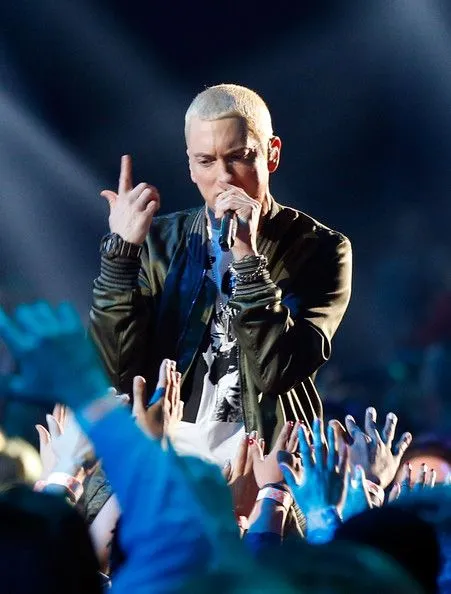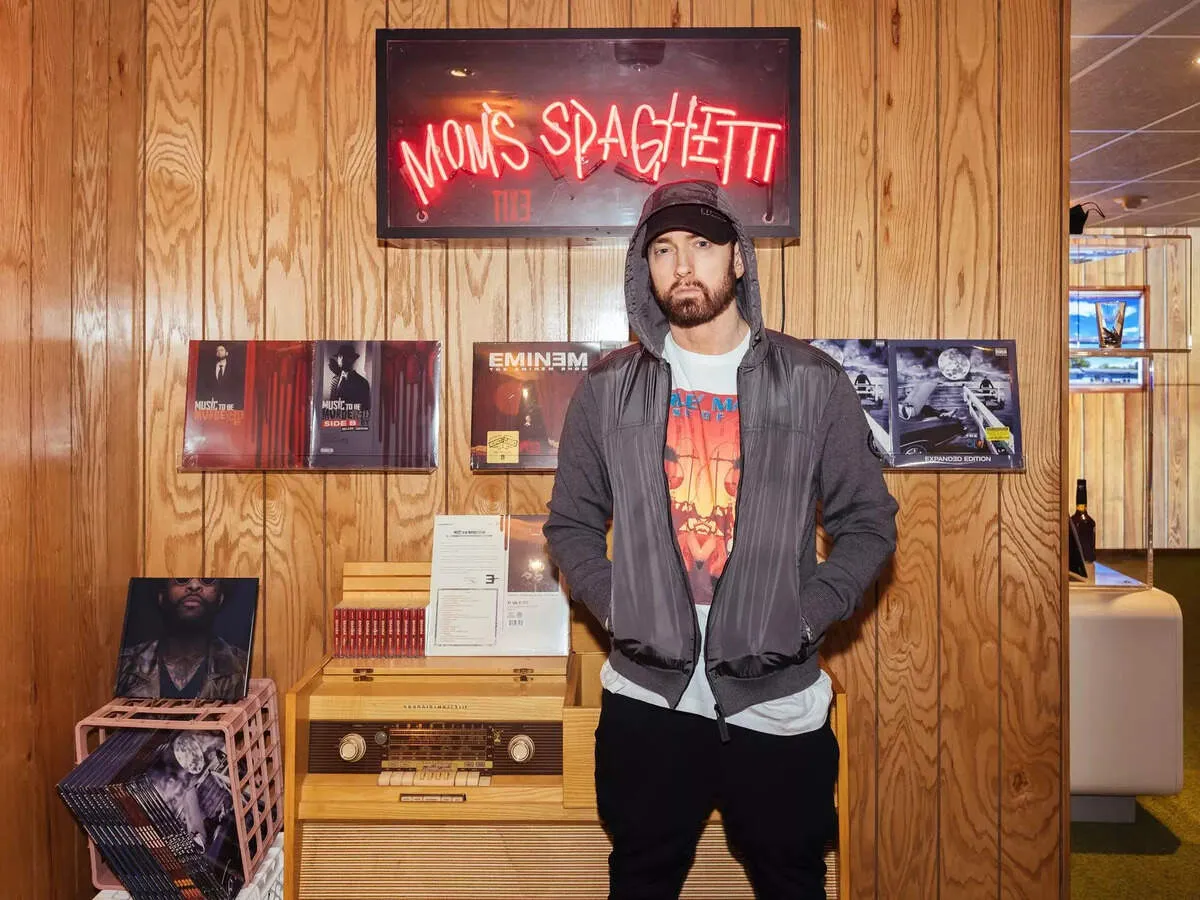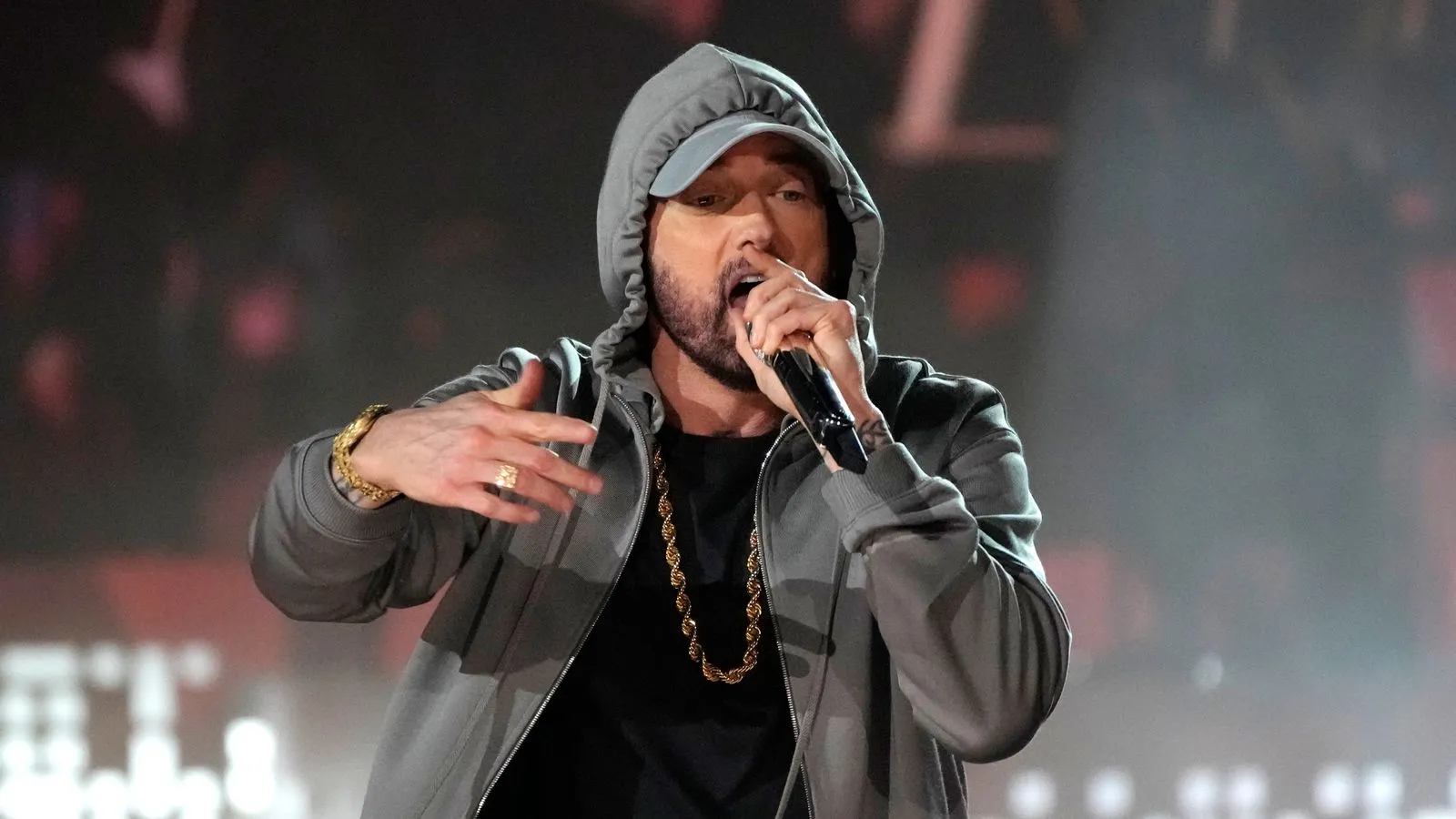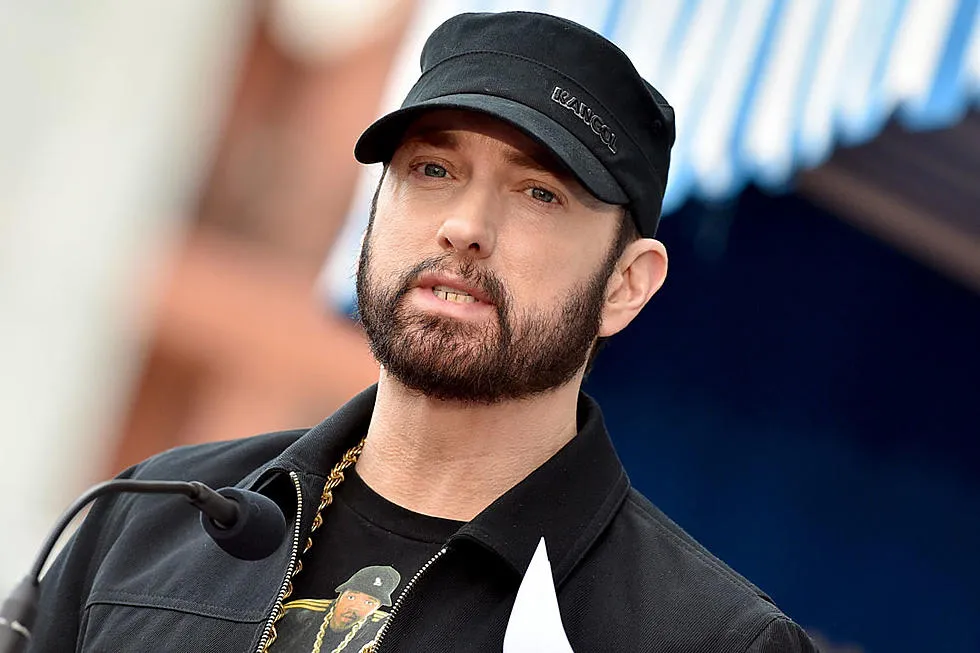

Eminem’s Empire Faces a Legal Storm — But Instagram & Facebook Just Laugh Off the $110 Million Lawsuit!
In a shocking twist that has sent ripples through the music and tech world, Meta Platforms, the parent company of Facebook, Instagram, and WhatsApp, has fiercely pushed back against a $110 million copyright lawsuit filed by Eminem’s music publisher, Eight Mile Style. The legal battle, which surfaced in May, claims that millions of users allegedly had access to Eminem’s iconic tracks, including the legendary “Lose Yourself”, without proper licensing.
But according to Meta, the lawsuit is “fanciful” and notably short on details, prompting the tech giant to ask a federal judge to dismiss the case. The move has reignited discussions about music licensing, copyright enforcement, and the power struggle between content creators and digital platforms.
What the Lawsuit Claims
Eight Mile Style, a publishing company controlling 243 Eminem compositions, alleges that all three Meta platforms were hosting unlicensed versions of its songs within their music libraries. These libraries allow users to add popular tracks to photos, videos, and stories, a feature that has become a staple of social media interaction.
The publisher argues that each unlicensed use constitutes copyright infringement, and it is seeking the maximum statutory damages of $150,000 per infringement case. Multiplied across 243 songs and three platforms, this brings the total to a staggering $109.4 million. The lawsuit paints a picture of billions of social media users unknowingly sharing Eminem’s music without permission, although Meta strongly disputes these claims.

Meta Fires Back: ‘Fanciful Estimates’
In a motion filed on Thursday, September 18, Meta’s legal team described Eight Mile Style’s lawsuit as “long on rhetoric but remarkably short on specifics.” Lawyers from Mayer Brown argued that the publisher failed to identify a single instance of infringement on any of the three platforms.
“Fanciful estimates are not a substitute for well-pleaded facts,” the motion stated. Meta further claimed that Eight Mile Style’s generalized allegations make it impossible for the company to mount an effective defense. Without clear examples, the case could be considered “dead on arrival”, according to the tech giant.
Licensing Agreements and Meta’s Defense
Meta asserts that it had proper licensing agreements in place. According to the motion, a deal was signed in 2020 with Audiam, a digital rights collection agency, covering the use of Eminem’s songs. Meta lawyers emphasize that the licenses were either explicit or understood in good faith by all parties involved.
“Far from showing ‘actual knowledge’ of infringement, these allegations instead reflect that the Audiam licenses covered the compositions,” the motion argued. This defense highlights a recurring issue in copyright disputes: whether platforms can be held liable when licensing agreements exist but disputes arise over coverage or scope.
Eminem’s Role – Or Lack Thereof
It’s important to note that Eminem himself is not involved in this lawsuit and does not own a stake in Eight Mile Style. While the rapper’s name headlines the case, this is a dispute between the publisher and Meta, underscoring a complex web of rights management in the music industry.
Eminem’s absence from the legal proceedings adds a layer of intrigue, leaving fans and industry insiders questioning the true motivations behind the suit. Is this a genuine copyright concern, or is it part of Eight Mile Style’s history of aggressive litigation?
Eight Mile Style’s Legal Track Record
Meta’s attorneys describe Eight Mile Style as “notoriously litigious.” The publisher has previously targeted streaming giants like Spotify, alleging that proper licensing was not obtained for its catalog. However, those cases have often been dismissed by federal courts for lacking sufficient evidence.
In one notable example, a federal judge sharply criticized Eight Mile Style for failing to provide concrete proof of infringement in its lawsuit against Spotify. That decision is now under appeal, showing a pattern of persistent, high-stakes litigation that continues to generate headlines.

The Social Media Angle
This lawsuit raises critical questions about music use on social media. Platforms like Instagram and Facebook have transformed the way users interact with music, enabling anyone to incorporate popular tracks into their posts. While licensing deals are meant to cover these uses, disputes like this highlight the complex and often opaque nature of digital music rights.
Experts argue that such lawsuits could have a chilling effect on social media content, with platforms potentially tightening access to music to avoid liability. For users, this could mean fewer options for integrating music into daily posts, stories, or reels, a move that could significantly impact social media engagement and trends.
Why This Case Matters
The Eminem licensing lawsuit is more than just a clash between a publisher and a tech giant—it reflects broader tensions in the music and tech industries. Key points of significance include:
-
Billions at Stake: With a claimed $110 million in damages, the lawsuit represents one of the largest potential copyright claims involving a single artist’s catalog in recent memory.
-
Digital Rights Complexity: The case underscores how licensing agreements and digital platforms intersect, creating disputes even when formal licenses exist.
-
Litigation Strategy: Eight Mile Style’s aggressive approach may set precedents for how music publishers pursue statutory damages across multiple platforms simultaneously.
-
Public Perception: Eminem fans and social media users are watching closely, raising awareness about how their favorite songs are legally used online.
Legal Experts Weigh In
Legal analysts describe Meta’s defense as strong, citing the 2020 licensing agreements as a key factor likely to influence the judge’s decision. “Without concrete examples of infringement, it’s extremely difficult for Eight Mile Style to succeed,” said one copyright attorney.
Some experts, however, caution that the case could linger in appeals due to the significant sums involved and the high-profile nature of the parties. “Even if the lawsuit is dismissed, it may set the stage for more nuanced discussions about licensing and user-generated content,” noted a tech law analyst.
What Could Happen Next
If the judge grants Meta’s motion to dismiss, Eight Mile Style may have to pursue further legal avenues, potentially appealing the decision or filing a revised complaint with detailed evidence. On the other hand, if the court allows the case to proceed, it could become a multi-million-dollar spectacle, drawing attention from fans, lawyers, and investors alike.
Meanwhile, social media users remain unaware that the songs they add to stories and videos could be at the center of a high-stakes copyright dispute, highlighting the increasing complexity of music rights in the digital age.

Takeaways for Music and Tech Fans
For those following Eminem and social media trends, the case is a must-watch event. It offers insights into:
-
How music licensing works in the digital era.
-
The power struggle between publishers and tech giants.
-
The potential legal risks of integrating copyrighted music into social media content.
For the casual user, it’s a reminder that every like, share, and post could be connected to a web of legal rights, even if it seems simple on the surface.
The Bottom Line
The Eminem licensing lawsuit against Meta is emblematic of the modern intersection between music, technology, and law. While the publisher seeks an eye-popping $110 million, Meta’s motion paints the claims as dramatic but unsubstantiated. With licensing agreements, historical litigation patterns, and the complexity of social media music integration at play, this case is poised to become a defining moment in copyright history for the digital age.
Whether this lawsuit results in a landmark judgment, a settlement, or a dismissal, one thing is clear: the intersection of iconic music and global tech platforms will continue to generate heated debates, legal scrutiny, and headlines that capture the world’s attention.
For Eminem fans, tech watchers, and legal enthusiasts alike, this is more than a lawsuit—it’s a high-stakes drama unfolding in real time, and the next chapter could redefine how the world interacts with music online.


















